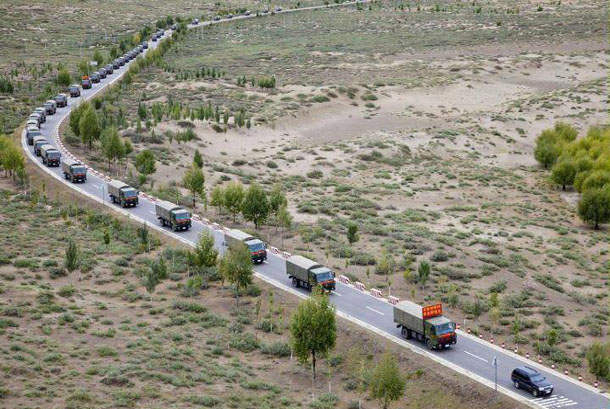Tansel came from Nynlong Village of Sartha County in Karze province. Soon after his arrest, the police raided his home and confiscated many of his books and CDs.
In another story reported by Radio Free Asia (RFS), a monk named Kalsang Gyatso was taken into custody on August 28, in Tsud County. No further details about his arrest are available at the moment.
Kalsang is a 27 years old native from Bora Village, Sangchu County of Kansu province.
The report also said that since 2008 the Chinese government has stationed a large number of army and police personnel in all corners of the three Tibetan regions.
This has resulted in restricting movements of the locals in the area. According to Chinese authorities, Chamdo , the center of Kham region, has many monasteries that are under constant surveillance. The police patrol the area around the monasteries and record all the comings and goings of all the monks.
On 1 September 2012, monks from U-Tsang region were compelled to stay in their monasteries and not allowed to travel to Amdo and other regions.
To be granted permission to leave, they had to possess four to five documents that were issued by the regional and county offices. These documents allowed them to move around the region only for fifteen days.
If they were not back home within this time frame, they would be deemed as “hindrances to national security.”
Under these circumstances monks, nuns and laymen find it very difficult to live and travel inside Tibet. With the passing of each day, the human rights situation continues to deteriorate resulting in amplified tension and unrest in the region.


![Tibet has a rich history as a sovereign nation until the 1950s when it was invaded by China. [Photo: File]](/images/stories/Pics-2024/March/Tibet-Nation-1940s.jpg#joomlaImage://local-images/stories/Pics-2024/March/Tibet-Nation-1940s.jpg?width=1489&height=878)
















